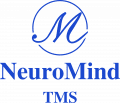Can OCD cured with TMS technique?
If you ask us kya OCD ka ilaj TMS se possible hai then we will say yes as this kind of option is possible in the long way. By the way you have to know what is the meaning of OCD? This kind of disease is called obsessive compulsion disorder.
Now with the help of TMS you can get more good and positive results. It is also called transcranial magnetic stimulation. This kind of technique is also known as non-invasive brain stimulation treatment. However when you approach any doctor to get it then you must recognize the symptoms of OCD and then you can get TMS therapy safely.
How is TMS procedure done to cure OCD?
After you know that OCD ka ilaj TMS se possible hai then you must know what is the surgical procedure of TMS? Here a magnetic field is activated to stimulate the brain cells. Then only you will get improvement in the symptoms of depression problem.
Here no kind of cutting the skin incisions is done. Even then in this condition your doctor will tell you honestly that TMS therapy is not too much permanent. This means clearly that even after getting this kind of therapy you have to keep on visiting your doctor regularly. Now days TMS has been approved by FDA to cure and treat OCD disease in the long way.
How to get OCD treatment without medications?
Some people have asked us OCD ka ilaj bina dawa ke possible hai kya?
· Well this is possible because there are other treatment options for you if you do not want to get OCD treatment through medications.
· Here ERP also called exposure and responsive prevention therapy has been found to be the best solution for getting OCD treatment.
· Your doctor will see what kind of symptoms you have that indicate that your disease is OCD.
· So it has been declared that you can cure your OCD without medicines only when you are taking other techniques like ERP and TMS. These are the best options to make you cured in the safest way.
Other treatment options to get cured from OCD
The more you practice OCD ka ilaj bina dawa ke then the more money savings you can get for yourself. Here you have to do the treatment management by your own efforts. If you take medications according to the instructions of your doctor then you will get saved from the setbacks in this kind of treatment.
Here recognizing the symptoms of OCD can guide you well in the direction of taking treatment without medications. Even talk therapy has been found here to be very much effective. When you learn how to control your thoughts then you can get success in getting well cured from OCD.
What is our final opinion?
OCD ka ilaj TMS se ho sakta hai, many doctors have claimed this truth. However here you have to know what is TMS therapy.
In this kind of therapy your brain cells will be activated with the help of transcranial magnetic field. So in our final opinion TMS therapy will be the best possible way to do OCD treatment in a very powerful way.




